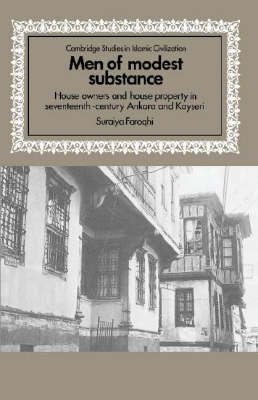Cambridge Studies in Islamic Civilization
2 total works
This is a study of two contrasting towns in Anatolia in the seventeenth century. As house ownership was widespread, data concerning value, description, location and ownership of dwellings constitute a valid manner of approaching urban society as a whole. Through her use of documents from the kadi registers of Ankara and Kayseri, Dr Faroqui follows changes in patterns of house ownership over approximately a century. The urban society thus revealed differs from the patterns generally associated with the 'Islamic city' model. Townsmen often bought real estate without selecting a quarter inhabited by their co-religionists, which throws light on the Muslim majority's attitude to the Christian minority. However examples of wealthy and poor quarters were not known. The kadi registers also indicate that despite passing through a period of crisis early in the century, both cultures managed a fairly rapid recovery from this.

